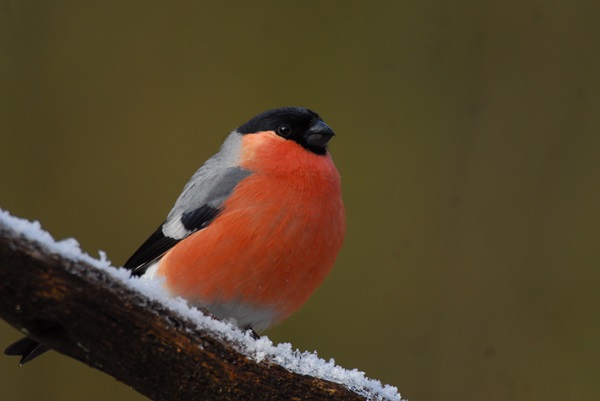 Eurasian bullfinch;
Credit: Raymond Gloden
Eurasian bullfinch;
Credit: Raymond Gloden
Experts at natur&ëmwelt, a leading nature conservation NGO in Luxembourg, shared tips and advice for bird feeding, which is becoming increasingly important with the early arrival of snow.
According to natur&ëmwelt, the strong migration of cranes in recent days has already announced increasingly colder temperatures. As it has been doing every year, natur&ëmwelt provided insights into things of which to be mindful while feeding the birds during the winter months.
Once one starts feeding birds, it should be done regularly: birds should have food available early in the morning and in the evening, the NGO emphasised. During the cold period of winter, calories are particularly important, which is why it is advisable to offer fatty foods in addition to seeds.
The ideal is to offer “high quality food”, that is to say, food without ragweed or tested against ragweed. Ragweed is an invasive plant species whose pollen can cause serious allergies. It is native to North America and has spread to Europe in recent years. Ragweed can be found in our homes during the summer and fall months. Contaminated bird food regularly causes new seedlings. Once the plant gains a foothold, it spreads invasively. This is why natur&ëmwelt recommend purchasing bird seed labelled “ragweed free” or “ragweed tested”.
Besides food mixes, fruits (such as raisins and apples) are also a welcome change in food. On the other hand, birds should never be given bread, as its high salt content is dangerous for them, natur&ëmwelt warned.
To avoid the transmission and spread of pathogens, animals should not enter the feeding areas. Bird-friendly feeding systems are, for example, feed columns and silos, into which clean feed always slides as needed.
Ragweed-free foods and feeding systems are available at the Maison de la Nature (5 Route de Luxembourg) in Kockelscheuer, the NGO noted.








